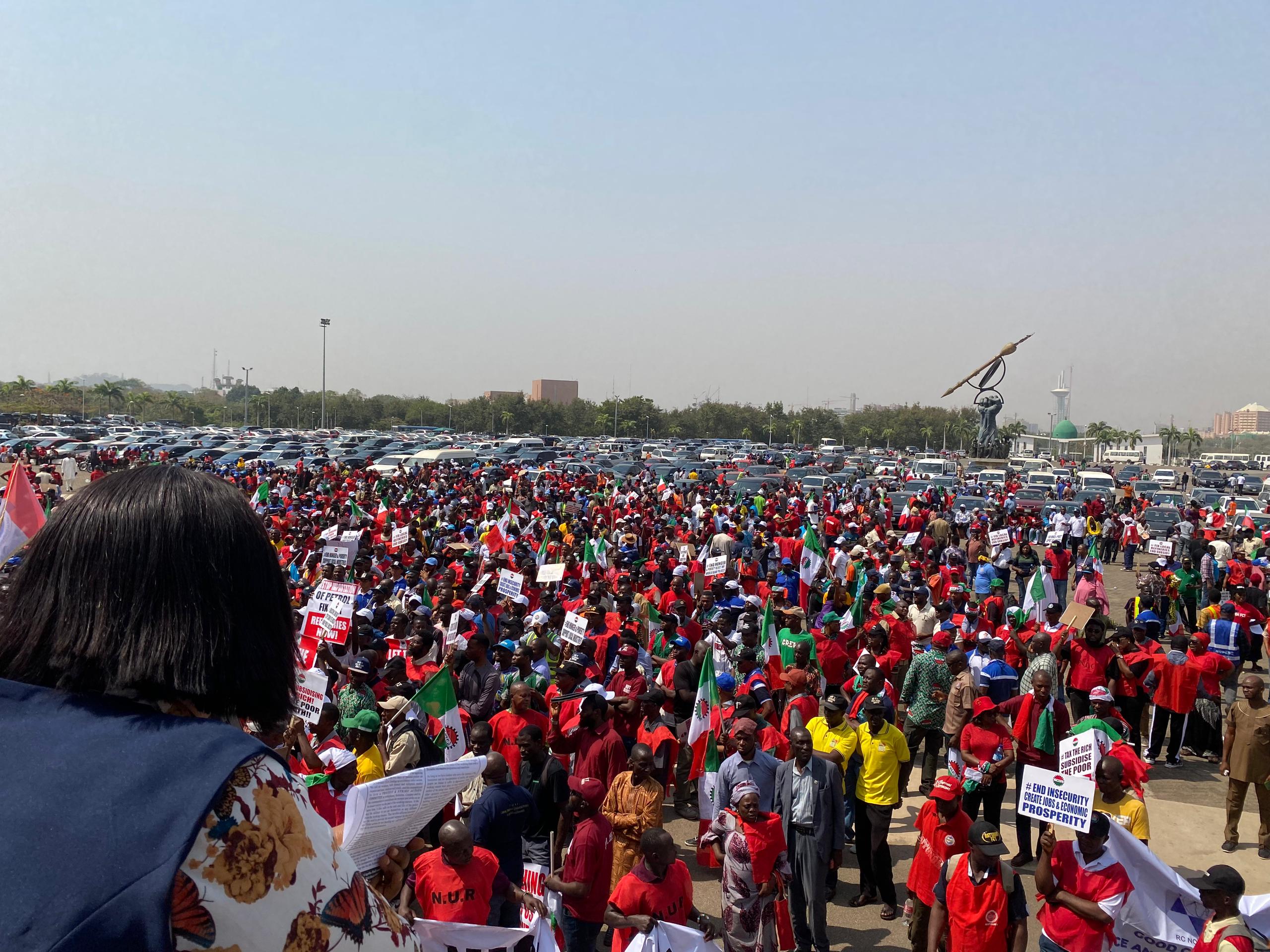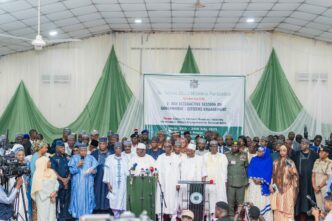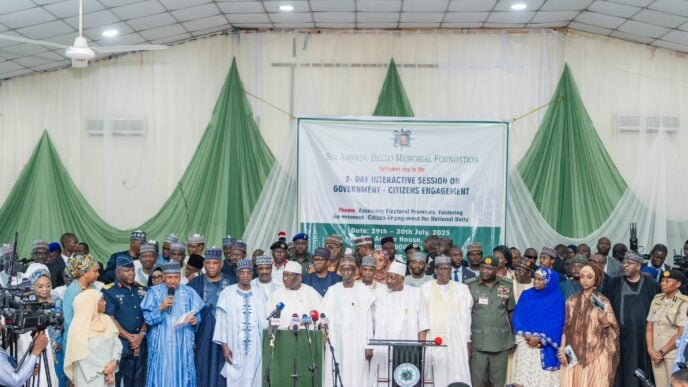2024 NLC protest in Abuja
BY SAMUEL JEKELI
In Nigeria today, many workers face serious challenges at their workplaces. While there are laws meant to protect them—like rules about fair pay, safe working conditions, and reasonable working hours—these laws are often not followed. Even worse, those responsible for making sure the rules are obeyed often do little or nothing when problems are reported.
Nigeria has labour laws that should protect workers. These include the minimum wage law, laws against unfair dismissal, and laws to ensure workers are safe at work. But many employers ignore these laws because they know no one will stop them.
Government offices that are supposed to inspect workplaces and ensure that labour laws are being followed are severely underfunded. Many of these offices lack basic tools like transportation, fuel, computers, and even stationery. The labour inspectors themselves are too few in number to properly monitor the thousands of businesses across Nigeria.
Advertisement
In some states, only a handful of inspectors are responsible for entire local governments. This means that millions of workers go unnoticed and unprotected, especially those working in small businesses, farms, retail shops, private schools, and domestic settings such as house helps and gatekeepers.
Due to this weak oversight, employers feel little pressure to obey labour laws. They exploit this loophole to underpay and overwork their employees. While the current national minimum wage is officially ₦70,000, a large portion of Nigeria’s working population earns far below this amount.
Teachers in private schools, domestic workers, cleaners, sales attendants, and casual labourers are often paid between ₦15,000 and ₦30,000 monthly. This amount is barely enough to cover food and transportation, let alone rent, healthcare, or other basic needs. These workers are also forced to work long hours—often up to 14 hours a day—without any form of overtime pay, breaks, or rest days.
Advertisement
The issue of workplace safety is also widely ignored. In many factories, construction sites, and workshops, workers operate dangerous machinery without safety gear or adequate training. Reports of fingers lost to machines, chemical exposure, and even death due to building collapse or fire are not uncommon. Yet, little to no action is taken against the responsible employers. These are avoidable tragedies that continue to happen because the systems for checking and enforcing safety regulations are weak or non-functional.
Several factors fuel the continued violation of labour rights in Nigeria ranging from; the shortage of trained and well-equipped labour inspectors makes it impossible to monitor all workplaces effectively, Corruption plays a significant role, with some employers bribing officials to ignore their offences, Lack of awareness is another problem—many workers do not know what their rights are, and even when they do, they are often afraid to speak out for fear of being fired or blacklisted.
Finally, the judicial process is too slow and costly. Labour disputes that make it to court often drag on for years, discouraging workers from even seeking justice in the first place.
As long as these problems persist, the Nigerian workforce will continue to suffer, and the dream of building a fair, inclusive, and productive economy will remain out of reach.
Advertisement
To fix this, Nigeria needs to make enforcement of labour laws a priority. This means; Hiring more labour inspectors and giving them proper tools, punishing companies that break the rules, educating workers about their rights, helping unions and civil society groups speak up for workers.
Nigeria cannot grow as a nation if its workers are suffering in silence. People deserve fair pay, safe jobs, and respect at work. It’s time for the government and employers to take responsibility and treat workers with dignity.
Samuel Jekeli writes from Centre for Social Justice, Abuja
Advertisement
Views expressed by contributors are strictly personal and not of TheCable.










